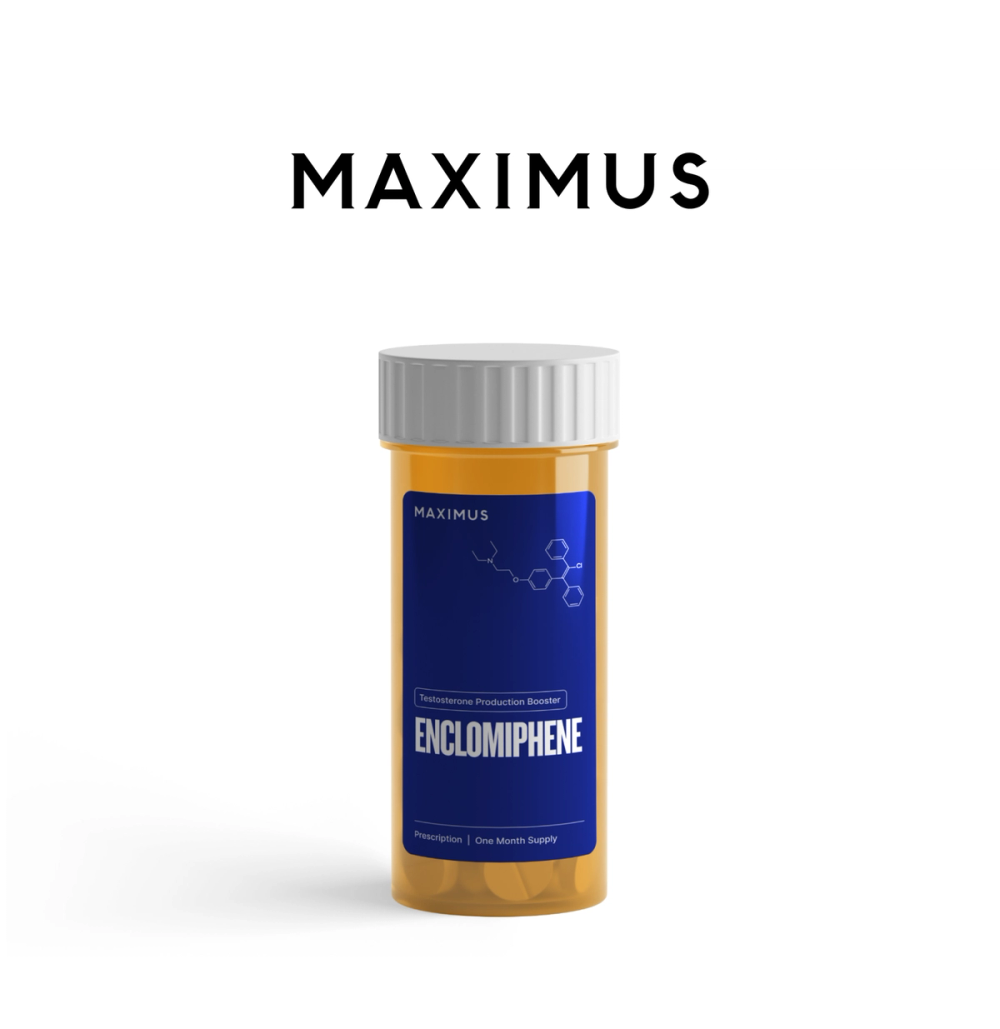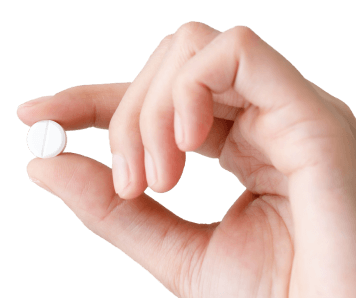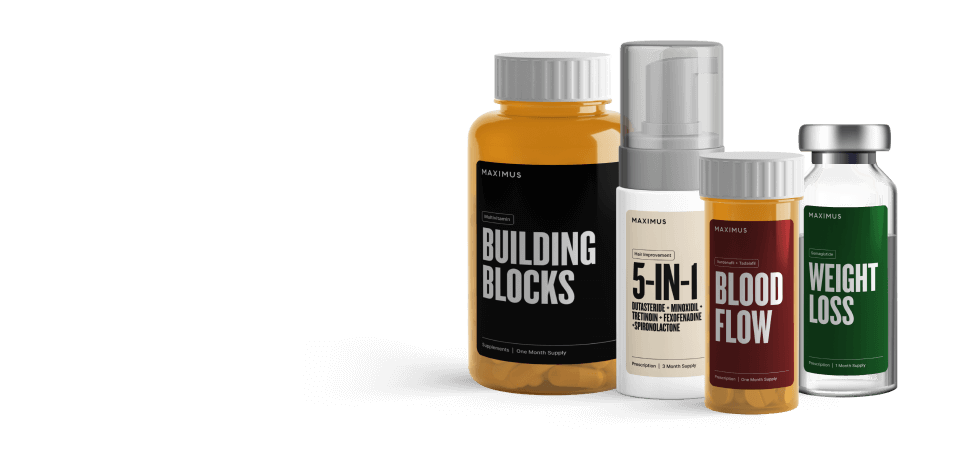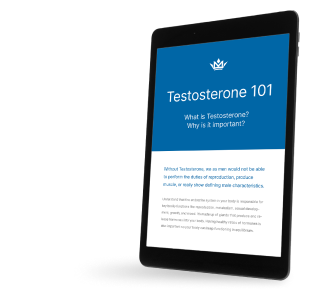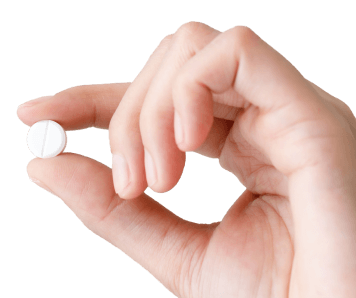Key Takeaways
- Licensed TRT providers charge between $ 1,200 and $4,620 annually for name brand TRT medications not including blood work and shipping costs, with Maximus offering protocols starting at $99.99 monthly.
- Medical oversight requires comprehensive blood testing, physician consultations, and ongoing monitoring for optimal results.
- Legitimate providers maintain transparent pricing, documented protocols, and FDA-approved medications.
Testosterone replacement therapy promises life-changing results when prescribed correctly.
However, testosterone cost can be confusing based on treatment type, provider quality, and insurance coverage.
In this guide you’ll learn how to eliminate the confusion and discover everything you need to know about testosterone treatment pricing.
How much does testosterone cost?
Monthly TRT costs range from about $100 to $450, and yearly TRT costs typically fall around $1,650-$3,200, on average, but can be higher.
Remember, these prices don’t include lab test costs or shipping which can vary depending on a few factors.
Low costs may mean lower quality, while high prices could indicate unnecessary tests. Look for a fair price that reflects quality and relevance to your health needs. Always research the lab and ask about what’s being tested.
Additionally, telehealth testosterone prices will vary based on factors like your medical provider, whether you have health insurance, which type of health insurance coverage you have, and the specific type of TRT you’re taking.
Some other factors that impact the cost of TRT include:
- Dosage
- Dosage frequency
- Delivery method
- Laboratory fees
- Blood test frequency
- Type of medication (name brand or compounded)
- Quality of doctor
- Level of patient care and follow-up
Maximus offers testosterone protocols starting at $99.99 monthly, with options reaching $399.99/month.
In addition to your testosterone supplements, these protocols also incorporate lab testing and access to board-certified physicians.
Is testosterone covered by insurance?
Insurance coverage varies based on:
- Provider network
- Plan type
- State regulations
- Medical documentation
- Treatment duration
Medical providers must document specific health criteria for insurance approval. Lab tests must show consistently low testosterone levels and physical symptoms need to be documented through multiple provider visits.
Depending on your insurance plan, you might not get coverage for low T symptoms like fatigue or depression alone. Medicare and Medicaid plans cover TRT costs when patients meet state-specific coverage requirements.
Monthly costs mentioned above may drop significantly with insurance coverage, varying by provider and policy type.
Additionally, your monthly expenses may fluctuate during treatment as doctors adjust your medication dosage and concentration. Insurance coverage may adapt to these changes based on medical necessity.
Is TRT expensive? TRT Payment Structures
The cost of testosterone replacement therapy (TRT) can vary widely, but it doesn't have to be expensive.
TRT is an ongoing treatment that requires titration and monitoring over time. While buying TRT, make sure you know your goals and how long you may need to be taking a treatment to reach them.
Payment structures that fit your goals will always be the best value in the long run.
Buying quality testosterone treatments
Earlier I mentioned that TRT typically costs around $1,650-$3,200 per year.
It’s important to keep in mind that medication advertised at a price far below this range may not be reliable.
It’s best to purchase testosterone from a licensed healthcare provider or pharmacy that can ensure the product is safe, high quality, and effective.
This will help minimize your risk of buying and taking potentially counterfeit or unsafe testosterone products
Need further convincing? The Food and Drug Administration (FDA) reports that counterfeit testosterone products often contain harmful substances or incorrect dosages.
Licensed providers source medications directly from FDA-registered pharmacies and compounding pharmacies.
In a study published in JAMA Internal Medicine, researchers found that among 7 direct-to-consumer online platforms that prescribe testosterone, 85.7% of them prescribed TRT to a “secret shopper” who had normal total and free testosterone levels and wanted to preserve his fertility.
Half of them didn’t discuss the fertility risks that can arise with some forms of TRT.
Before prescribing TRT, most legitimate providers will require:
- Blood testing
- A thorough review of your medical history
- Ongoing monitoring
Licensed medical providers maintain proper documentation, follow FDA guidelines, and monitor patient progress through regular blood work.
This type of medical oversight allows for dosage adjustments based on lab results.
How to source your testosterone safely
While there are many trusted testosterone providers online, testosterone is unfortunately sometimes exploited by unethical and fraudulent online providers.
Ensuring the quality and safety of your treatment while also keep it cost-effective is a delicate balance.
FDA-approved compounding pharmacies offer a safe, cost-effective alternative to mass-produced brand-name medications.
They customize prescriptions to your needs, often at a lower cost without compromising quality.
However, it’s always important to vet the source of your treatment before buying.
Here are some tips for validating testosterone sourcing if you decide to order from a lesser known provider:
1. Verify medical credentials
Verify your provider's medical license through state databases and ask about their specific experience treating testosterone deficiency. Check for disciplinary actions or malpractice claims.
You can also check that the clinic is registered with state medical authorities. Licensed clinics follow strict protocols for prescribing controlled substances.
2. Ensure proper testing
Without comprehensive testing, a prescription is not as reliable.
Most medical providers require multiple blood tests to measure total and free testosterone levels.
Blood tests track hormone levels, liver function, kidney health, and blood cell counts. Regular testing ensures optimal dosing while preventing potential health complications.
Blood tests are usually required to confirm testosterone levels below 300 ng/dL, often accompanied by symptoms of low testosterone.
3. Review your treatment plan
Licensed providers often create personalized protocols based on lab results and your medical history.
Each treatment plan outlines specific medications, dosing schedules, and monitoring requirements.
Reputable providers document clear goals for testosterone levels, symptom improvement, and health markers. Providers explain potential side effects and risk management strategies during consultation.
Quality clinics adjust treatments based on individual responses and ongoing lab results.
4. Check pricing transparency
Licensed providers should maintain clear and transparent pricing upfront, for all aspects of treatment.
This includes outlining all costs - from medications to lab work to physician consultations. They’ll also be open to questions.
When providers advertise unusually low rates without explaining their service coverage, that’s a red flag.
Consider staying away from clinics demanding upfront payments without detailed pricing breakdowns.
5. Research patient reviews
Patient testimonials give you the chance to learn about real treatment experiences and provider reliability.
Look for detailed reviews discussing specific energy, mood, and physical improvements rather than vague praise.
Most quality providers maintain verified review platforms that contain both positive and negative feedback. Read through multiple reviews to spot patterns in customer experiences and overall satisfaction.
Watch out for providers who display only perfect reviews.
Improve your testosterone levels safely with Maximus
Still unsure? Explore Maximus testosterone today to learn about our testosterone treatment options, including for physician-guided treatment, lab monitoring, and FDA-approved medications.
Disclaimer: The contents of this article, including, but not limited to, text, graphics, images, and other information, is for information purposes only and does not constitute medical advice. The information contained herein is not a substitute for and should never be relied upon for professional medical advice. The content is not meant to be complete or exhaustive or to be applicable to any specific individual's medical condition. You should consult a licensed healthcare professional before starting any health protocol and seek the advice of your physician or other medical professional if you have questions or concerns about a medical condition. Always talk to your doctor about the risks and benefits of any treatment. Never disregard or delay seeking professional medical advice or treatment because of something you have read on this site. Maximus does not recommend, endorse, or make any representation about the efficacy, appropriateness, or suitability of any specific test, products, procedures, treatments, services, opinions, healthcare providers or other information contained herein. Maximus is not responsible for, nor will they bear any liability for, the content provided herein or any actions or outcomes resulting from or related to its use.

